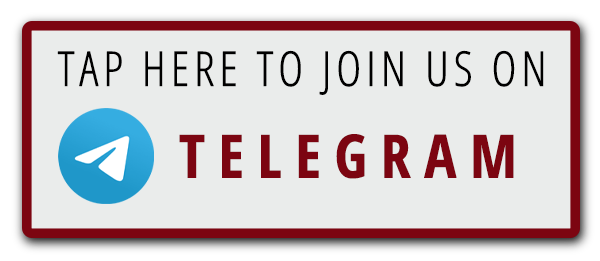Supreme Court Hands Victory to Biden, Backs Student Debt Plan
The United States Supreme Court has handed Democrat President Joe Biden has massive victory by backing his radical student debt relief plan.
Biden has been pushing his student loan relief program that seeks to wipe the debts of college-educated voters.
His plan, however, offers nothing for those who paid off their debts, worked their way through college without loans, or chose not to enter higher education.
The Supreme Court has now ruled that it would not block the $6 billion in taxpayer-funded relief for former students.
“The justices turned away a request from three colleges that are challenging a settlement between the U.S. Education Department and borrowers that linked the colleges to claims of substantial misconduct, an allegation they dispute,” Reuters reported.
“Three of the schools identified in the settlement – for-profit Lincoln Educational Services Corp (LINC.O) and American National University Inc as well as nonprofit Everglades College Inc – challenged the agreement after it was approved by a federal judge in California last November.
“Around 3,500 borrowers entitled to automatic loan discharge under the settlement attended one of the three schools.”
This is not the only case to go before the SCOTUS regarding Biden’s student debt plans, however.
Biden’s massive plan to cut nearly $430 million in debt from around 40 million borrowers, which many believe will be struck down by the court, will also be reviewed by justices.
A third legal challenge over student loan forgiveness could also be headed to the U.S. Supreme Court.
“The Supreme Court is already considering two legal challenges over President Joe Biden’s signature one-time debt relief plan,” Forbes reported.
“That massive initiative would allow up to 40 million borrowers to receive $10,000 or more in federal student loan forgiveness.
“The Court held a historic hearing in February where the justices hammered attorneys on both sides of the dispute, and it’s expected to issue a ruling in June.
“In the meantime, no borrowers have received loan forgiveness under the initiative.”
“But now, another legal dispute over a smaller, but still significant student loan forgiveness initiative is being appealed to the Supreme Court,” the outlet added.
“It’s too early to know what the Court will do. But here’s what borrowers should know.”
In early March, Supreme Court Justice Clarence Thomas peppered the Biden administration with questions regarding the president’s student loan giveaway during oral arguments, signaling he does not believe that the White House had the constitutional authority to do it.
The Supreme Court justices listened to arguments in two cases concerning Biden’s student loan forgiveness program.
The first case, Biden v Nebraska, involved six Republican attorneys general who contended that the program is an overreach by the president.
US Solicitor General Elizabeth Prelogar, arguing on behalf of the administration, stated that if the pause on payments is allowed to end without some sort of plan in place, “it’s undisputed that defaults and delinquencies will surge above pre-pandemic levels.”
“The states ask this court to deny that vital relief to millions of Americans, but they lacked standing to seek that result,” she also said.
Continuing, Prelogar argued further that “the states say the act doesn’t authorize the [Education] secretary to ever forgive loan principal. But the secretary’s interpretation of this text is not just a plausible reading, it’s the best reading.
“Congress expressly authorized the secretary to waive or modify any title for provision in emergencies to provide financial relief to borrowers.”
Thomas queried whether a waiver or modification could equate to the cancellation of student loans.
In response, Prelogar pointed out that the HEROES Act, implemented after 9/11, grants the education secretary certain measures that could be implemented during a national emergency, according to The Post Millennial.
But critics like Thomas say that the HEROES Act was specific to emergencies arising from the Sept. 11, 2001, terrorist attacks, not a pandemic two decades later.
Thomas further asked Prelogar to clarify the distinction between the cancellation of student loan debt and grants that Congress is responsible for appropriating.
“There’s some discussion in the briefs …. that this is in effect a cancellation of a debt, that’s really what we’re talking about, and that as a cancellation of $400 billion in debt, in effect this is a grant of $400 billion and it runs headlong into Congress’ appropriations authority,” he said.
Prelogar responded that the student loan program “doesn’t require any money be drawn from the Treasury, and so I don’t think that it strictly raises an appropriations issue.”
Meanwhile, President Biden said this week following the arguments portion of the case that he wasn’t “confident” the loan giveaway would pass constitutional muster under the parameters established by a majority of justices.
“President Joe Biden told reporters Wednesday he is not confident the Supreme Court will uphold his executive order to cancel up to $20,000 of federal student loan debt for tens of millions of borrowers—a day after the court’s conservative majority seemed skeptical of Biden’s authority to enact debt relief,” Forbes reported.
Biden said outside the White House he’s “confident we’re on the right side of the law, but I’m not confident about the outcome of the decision yet,” according to a White House pool report.
Justice Brett Kavanaugh said at the hearing that “some of the biggest mistakes in the court’s history were deferring to assertions of the executive or emergency power,” Forbes noted further.
Liberal justices, meanwhile, like Elena Kagan, defended the move as legal under the “very broad language” of the 2003 HEROES Act.
READ MORE: China Releases Documents Showing Millions of Dollars Flowing to Bidens from Chinese Firms

